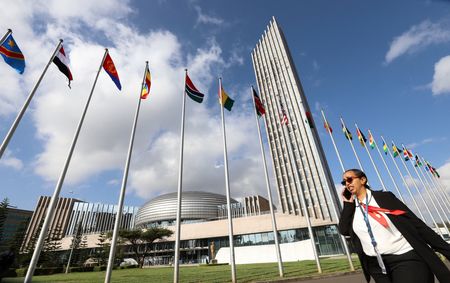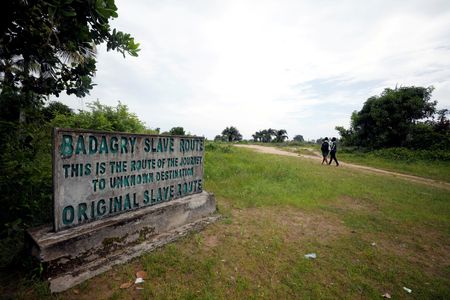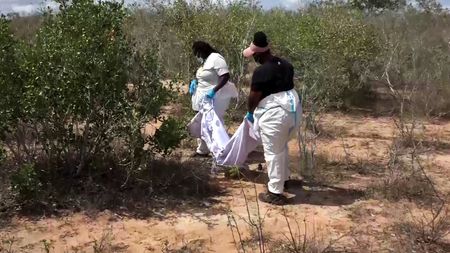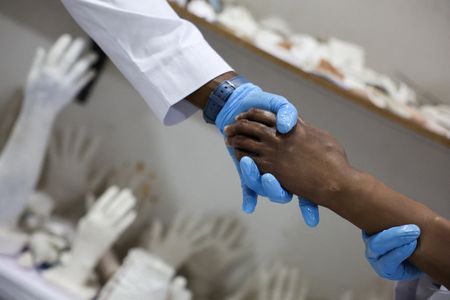By Catarina Demony
(Reuters) – African leaders meeting in Ethiopia this weekend are to launch a new push for slavery and colonial reparations, but can expect to be stonewalled by former colonial powers, most of which have ruled out making amends for historical wrongs.
While the issue of reparations has gained momentum worldwide, so has the backlash. U.S. President Donald Trump has said he “doesn’t see it (reparations) happening” and many of Europe’s leaders have opposed even talking about it.
At the African Union summit in Addis Ababa, leaders plan to shape a “unified vision” of what reparations may look like, from financial compensation and formal acknowledgement of past wrongs to policy reforms.
“Reparations is the hot topic in Addis Ababa,” the AU’s economic, social and cultural council, ECOSOCC, wrote on X.
From the 15th to the 19th century, at least 12.5 million Africans were kidnapped, forcibly transported by mostly European merchants and sold into slavery.
The debate on reparations needs to address the legacy of colonialism and slavery today, from racism to the economic disparities between Africa and wealthy Western nations, said ECOSOCC, which has been advising member states on the issue.
“It is increasingly becoming impossible to not acknowledge the damage caused by slavery and colonialism,” said Zimbabwean lawyer and reparations expert, Alfred Mavedzenge.
The continent’s debt crisis can be traced back to African nations being saddled with heavy debts upon independence. Climate change can also be linked to colonialism: Africa is responsible for just a fraction of carbon emissions, but its fragile ecosystems have borne the brunt of global warming.
‘MORE THAN JUST COMPENSATION’
Much of the debate around reparations, particularly in former colonial powers such as Britain and Portugal, has focused on financial payments but advocates say making amends for the past can take many forms.
“Reparations are more than just compensation,” said ECOSOCC’s head of secretariat William Carew. “It is about… ensuring future generations inherit a world that acknowledges their past and propels them towards a brighter future.”
The AU said in a statement that reparations for Africa could entail land restitution in countries where land was taken from indigenous populations to the return of cultural artefacts.
It also highlighted the need for changes in policies that perpetuate inequalities and for international bodies, such as the United Nations, to hold former colonial powers to account.
“This might involve diplomatic pressure or legal actions at international courts,” said the AU.
In 2023, the AU joined forces with the Caribbean community CARICOM to demand reparations. CARICOM has its own reparation plan, which, among other demands, calls for technology transfers and investments to tackle health crises and illiteracy.
RIGHT-WING BACKLASH
But 30 years since the AU’s forerunner, the Organisation of African Unity, issued a declaration demanding reparations, there has been little progress.
Jose Maria Neves, president of the African island nation of Cape Verde, has said right-wing populism and its impact on moderate politics has made it difficult to hold a serious debate over the issue.
In Portugal, which enslaved more Africans than any other nation, far-right party Chega proposed charging the president with treason for suggesting there might be a need for reparations.
In Britain, right-wing populist Nigel Farage said Prime Minister Keir Starmer would be “weak” if he engaged in talks on the issue. In France, where the far-right is on the rise, President Emmanuel Macron has ruled out reparations, calling for “reconciliation” instead.
“My greatest concern is that there will just be a conversation at this (AU) summit but the resolutions will not be implemented,” Mavedzenge said.
(Reporting by Catarina Demony in London; Editing by Ros Russell)









